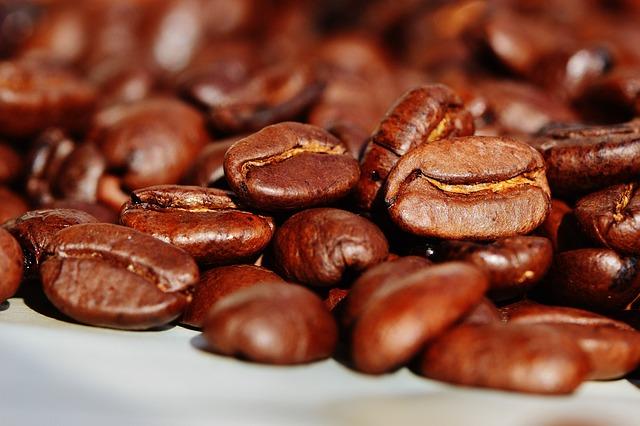Have you ever wondered if your favorite chocolate milk contains a sneaky dose of caffeine? Well, get ready for some sweet revelations as we delve into the world of this decadent drink. From indulgent sips after school to creamy cravings before bedtime, chocolate milk has always been a beloved treat. But does it secretly give us a caffeinated boost? Join me as we explore this tantalizing mystery and uncover the truth behind that rich, velvety goodness. Get ready to have your taste buds tickled and your curiosity satisfied as we dive into the delicious world of chocolate milk!
1. The Mysterious Sidekick: Debunking the Myth of Caffeine in Chocolate Milk
When it comes to chocolate milk, there is a common belief that it contains caffeine, but let me tell you, that is simply not true. Many people think that the energizing effects they experience after drinking chocolate milk are a result of caffeine, but in reality, it’s the combination of other factors. So, let’s debunk this myth once and for all!
First and foremost, it’s important to understand that the primary ingredients in chocolate milk are milk and cocoa powder. While cocoa powder does contain a small amount of caffeine naturally, the amount used in chocolate milk is negligible. In fact, a typical serving of chocolate milk contains less caffeine than a decaffeinated cup of coffee! So, if you think you’re getting a jolt of energy from caffeine in your chocolate milk, think again.
Wondering what actually gives you that boost of energy? It’s the natural sugars found in milk and chocolate. These sugars provide quick energy to your body, making you feel more alert and focused. Additionally, the protein and carbohydrates present in chocolate milk help replenish your energy stores, making it a great post-workout option. So, next time you enjoy a glass of chocolate milk, remember that it’s not the caffeine that’s giving you the boost, but rather the combination of natural sugars and other nutrients.
- Chocolate milk does not contain caffeine as a primary ingredient.
- The small amount of caffeine naturally present in cocoa powder used in chocolate milk is negligible.
- The energizing effects of drinking chocolate milk come from natural sugars, protein, and carbohydrates.
- A serving of chocolate milk contains less caffeine than a decaffeinated cup of coffee.
- Chocolate milk is a great post-workout option due to its ability to replenish energy stores.
It’s time to put an end to the misconception that chocolate milk gets its kick from caffeine. The truth is that it’s the combination of natural sugars, protein, and carbohydrates that make it an energizing and delicious treat. So, go ahead and savor every sip of your chocolate milk without worrying about the mythical caffeine!

2. Deciphering the Ingredients: What Makes Chocolate Milk so Mouthwateringly Good
Chocolate milk is a beloved treat that delights our taste buds with its rich and creamy flavor. But have you ever wondered what gives it that irresistibly mouthwatering taste? Let’s delve into the fascinating world of chocolate milk ingredients and uncover the secrets behind its deliciousness!
The primary ingredients in chocolate milk are milk, cocoa powder, sugar, and flavorings. Here’s a breakdown of each component and how it contributes to the delectable drink we all adore:
- Milk: This forms the base of chocolate milk and provides a smooth and creamy texture. It also adds essential nutrients like calcium and protein, making it a healthier alternative to some sugary beverages.
- Cocoa powder: The star of the show, cocoa powder is what gives chocolate milk its distinct chocolatey flavor. Made by grinding roasted cocoa beans, it’s rich in antioxidants and adds a delightful bitterness that perfectly balances the sweetness.
- Sugar: To satisfy our sweet tooth, sugar is added to chocolate milk. It enhances the overall taste, making it a truly indulgent treat. However, many variations of chocolate milk now offer reduced sugar options to cater to different dietary preferences.
- Flavorings: Apart from the core ingredients, a variety of flavorings like vanilla extract or chocolate syrup can be added to further enhance the taste. These flavorings add depth and complexity, elevating the overall experience of sipping on a glass of chocolate milk.
Next time you savor a glass of chocolate milk, take a moment to appreciate the thoughtfully combined ingredients that transform it into a mouthwateringly good beverage. Whether enjoyed cold or warm, on its own or paired with your favorite cookies, chocolate milk is a delightful treat that never fails to bring joy!

3. The Surprising Truth: Does Chocolate Milk Really Contain Caffeine?
While many of us enjoy indulging in a creamy glass of chocolate milk, there’s a question that often lingers in our minds: does it contain caffeine? Well, the surprising truth is that chocolate milk generally does not contain caffeine. In fact, most commercially-produced chocolate milk is caffeine-free. So, if you’re looking for a caffeine boost, you might need to explore other beverage options.
But wait, you might be wondering why some people still associate chocolate milk with a caffeine kick. The answer lies in the type of chocolate used. Dark chocolate, which has a higher cocoa content, can contain small amounts of caffeine. However, the amount of caffeine in dark chocolate is significantly less than what you would find in a typical cup of coffee or a can of soda. So, while it’s true that dark chocolate can contain some caffeine, the amount is usually not enough to make a noticeable impact if you’re sipping on a glass of chocolate milk made from regular milk and milk chocolate.
4. Hidden Jolt or Simply Delicious? Investigating Caffeine Content in Chocolate Milk
Caffeine is a popular stimulant found in various beverages like coffee and energy drinks. While it’s widely known that chocolate contains a small amount of caffeine, one might wonder about the caffeine content in chocolate milk. In this article, we’ll delve into the hidden jolt of caffeine present in everyone’s favorite childhood drink, while also exploring the deliciousness it offers.
1. What is caffeine?
Caffeine is a natural stimulant that belongs to a group of compounds called xanthines. It can increase mental alertness, improve concentration, and provide a temporary energy boost. Found in plants, such as coffee beans, tea leaves, and cocoa beans, caffeine is commonly consumed for its effects on the central nervous system.
2. Chocolate milk: the secret caffeine source?
You may be surprised to learn that chocolate milk does indeed contain caffeine, although in much smaller amounts compared to a cup of coffee. The caffeine content varies depending on the specific brand and type of chocolate milk. On average, an 8-ounce serving of chocolate milk contains about 2-7 milligrams of caffeine, which is significantly less than a typical cup of coffee that can contain up to 95 milligrams of caffeine.
5. Chocolate Milk Unveiled: Exploring the Science Behind its Irresistible Flavor
What makes chocolate milk so irresistibly delicious? The secret lies in the science behind its flavor. Let’s dive in and explore the fascinating world of chocolate milk!
First and foremost, chocolate milk gets its rich flavor from cocoa beans. These magical beans are harvested, fermented, roasted, and finally ground into a fine powder. This cocoa powder is then mixed with milk, sugar, and sometimes a touch of vanilla to create the delightful taste we all love.
But it’s not just the cocoa beans that contribute to the irresistible flavor of chocolate milk. The milk itself plays a crucial role. Milk contains a natural sugar called lactose, which adds a hint of sweetness to the beverage. This combination of sugar from the milk and added sugar creates the perfect balance of flavors.
Additionally, the fat content in chocolate milk enhances its flavor. Fat acts as a carrier for the flavor compounds, allowing them to interact with our taste buds and create a smooth and creamy sensation. The fat also adds a velvety texture that further enhances the overall experience.
Moreover, the process of homogenization plays a vital role in the taste of chocolate milk. Homogenization ensures that the fat in the milk is evenly distributed, resulting in a consistent and velvety mouthfeel that enhances the flavor even more.
Lastly, the temperature at which we drink chocolate milk can influence the flavor experience. The coldness of the beverage can numb our taste buds slightly, reducing the perception of sweetness and enhancing the richness of the chocolate.
In conclusion, the science behind the irresistible flavor of chocolate milk is a combination of factors. From the cocoa beans and milk to the added sugar and homogenization process, each element contributes to the delightful flavor we can’t resist.
6. A Sneak Peek into the Process: How Chocolate Milk is Made and Modified
Chocolate milk is a delightful treat enjoyed by people of all ages. Have you ever wondered how this sweet beverage is made and what modifications it undergoes? Let’s take a behind-the-scenes look at the process!
First and foremost, the journey of chocolate milk starts with its main ingredient: milk. This dairy marvel is obtained from cows and undergoes a rigorous pasteurization process to ensure its safety and quality. Once the milk is pasteurized, it is typically combined with cocoa powder or chocolate syrup to create that rich, chocolatey flavor we all love. The amount of cocoa or syrup added can vary depending on the desired taste and consistency.
Next, the milk and chocolate mixture is homogenized. Homogenization is a process that breaks down the fat globules in the milk into smaller particles, ensuring a smooth and consistent texture. This step is crucial in preventing the separation of milk and chocolate solids, guaranteeing a deliciously blended beverage.
To enhance the flavor and sweetness, various modifications may be made to chocolate milk. Some manufacturers may add sugar or sweeteners to achieve the desired level of sweetness. Additionally, certain emulsifiers and stabilizers may be incorporated to maintain a smooth texture and prevent the settling of cocoa particles.
It’s fascinating to see the intricate process behind the creation of a beloved drink like chocolate milk. From the careful selection of ingredients to the precise modifications made, each step plays a vital role in bringing this delightful treat to our glasses. So next time you relish a glass of chocolate milk, take a moment to appreciate the artistry and effort that goes into making it so scrumptiously irresistible!
7. The Sweet Reality: Understanding the Impact of Chocolate Milk on Our Body and Mind
Chocolate milk is a delicious treat that many of us enjoy, but did you know it can also have a positive impact on our body and mind? Here are some key ways that indulging in a glass of chocolate milk can benefit you:
1. Provides essential nutrients: Chocolate milk is not just a tasty beverage, but a nutritious one too! It contains important nutrients like calcium and vitamin D, which are essential for strong bones and teeth. Additionally, it is packed with protein, which is crucial for muscle growth and repair. So, next time you’re craving something sweet, reach for chocolate milk to satisfy your sweet tooth while nourishing your body.
2. Boosts post-workout recovery: After a tough workout, your body needs to replenish its energy stores and repair muscle tissue. The combination of carbohydrates and protein found in chocolate milk makes it an excellent recovery drink. The carbohydrates provide immediate energy, while the protein aids in muscle recovery and growth. Enjoying a glass of chocolate milk post-workout can help you recover faster and get back to your next workout feeling stronger and more energized.
8. A Cup of Goodness: Exploring the Benefits and Drawbacks of Indulging in Chocolate Milk
Chocolate milk is undeniably delicious, but have you ever wondered about its impact on your health? Let’s dive into the benefits and drawbacks of this sweet treat, so you can make an informed decision the next time you reach for that tempting carton.
The Benefits of Chocolate Milk:
- Rich in nutrients: Chocolate milk contains essential vitamins and minerals, including calcium, potassium, and vitamin D. These nutrients contribute to building strong bones, supporting muscle function, and boosting overall immune health.
- Post-workout recovery: Due to its optimal carbohydrate-to-protein ratio, chocolate milk has gained popularity as a post-workout beverage. It helps replenish energy stores and aids in muscle recovery. So, athletes and fitness enthusiasts often find it beneficial for their exercise routine.
- Mood booster: Ever wondered why a sip of chocolate milk can instantly lift your spirits? Well, chocolate contains compounds that can stimulate the release of endorphins, the “feel-good” hormones in your brain.
The Drawbacks of Chocolate Milk:
- Added sugars: One downside of many commercial chocolate milk brands is the added sugars. While a moderate amount of sugar can be enjoyed as part of a balanced diet, excessive consumption can increase the risk of weight gain, tooth decay, and other health issues.
- Lactose intolerance or dairy allergies: For individuals who are lactose intolerant or have dairy allergies, consuming chocolate milk can lead to digestive discomfort, bloating, or allergic reactions. It’s crucial to consider alternatives such as lactose-free milk or non-dairy alternatives like almond or oat milk.
- Calories: Although chocolate milk can provide essential nutrients, it is important to be mindful of portion sizes. Its calorie content can be higher compared to regular milk, so moderation is key, especially if you are trying to manage your weight.
Frequently Asked Questions
Q: Does chocolate milk have caffeine?
A: Yes, chocolate milk can contain a small amount of caffeine although it varies between brands and types of chocolate milk.
Q: How much caffeine is typically found in chocolate milk?
A: The amount of caffeine in chocolate milk is generally much lower than that in a cup of coffee or a can of soda. On average, you can expect about 2-7 milligrams of caffeine per serving of chocolate milk.
Q: Why does chocolate milk have caffeine?
A: The caffeine in chocolate milk comes from the cocoa used to make the chocolate flavoring. Cocoa naturally contains a small amount of caffeine, and when it is added to milk, it carries over into the final product.
Q: Does all chocolate milk have the same amount of caffeine?
A: No, the amount of caffeine in chocolate milk can vary depending on the brand, the chocolate used, and the specific recipe. Some brands may also choose to add more or less cocoa, which would affect the caffeine content.
Q: Is the amount of caffeine in chocolate milk harmful?
A: Generally, the amount of caffeine found in chocolate milk is considered safe for most people, including children. However, if you have sensitivities or are particularly sensitive to caffeine, it is always a good idea to check the specific caffeine content on the label or consult with a healthcare professional.
Q: Can caffeine in chocolate milk affect my sleep?
A: Since chocolate milk contains only a small amount of caffeine, it is unlikely to disrupt your sleep if consumed in moderation. However, everyone’s sensitivity to caffeine can vary, so it’s best to listen to your body and avoid consuming chocolate milk close to bedtime if you think it may affect your sleep.
Q: Are there any benefits to having caffeine in chocolate milk?
A: While the primary purpose of chocolate milk is to provide a tasty and nutritious beverage, the small amount of caffeine it contains could contribute to increased alertness or temporarily boost energy levels. However, it is important to note that the beneficial effects of caffeine are typically more pronounced at higher doses, not at the levels found in chocolate milk.
Q: Can I consume chocolate milk if I’m sensitive to caffeine?
A: If you are sensitive to caffeine, but still enjoy chocolate milk, you can explore brands or variations of chocolate milk that use decaffeinated cocoa. These products undergo a process to eliminate or significantly reduce the caffeine content, allowing you to enjoy the chocolate flavor without the potential caffeine side effects.
Q: Is there a non-caffeinated alternative to chocolate milk?
A: Yes, if you prefer a non-caffeinated option, you can opt for plain milk or vanilla-flavored milk. These alternatives provide the same essential nutrients found in chocolate milk but without the small amount of caffeine.
To Wrap It Up
In conclusion, when it comes to the question of whether chocolate milk contains caffeine, we’ve uncovered some sweet revelations. While cocoa naturally contains a small amount of caffeine, the levels in chocolate milk are relatively low, making it a perfectly acceptable choice for those looking to avoid excessive caffeine intake. So, whether you’re a chocolate lover or simply in need of a delicious and nutritious beverage, chocolate milk can be enjoyed without worrying about a caffeine overload. Indulge in the velvety, rich taste without any jitters or sleepless nights. So go ahead and savor the goodness of chocolate milk, knowing that it’s a caffeine-friendly choice that won’t disappoint your taste buds or your peace of mind.







